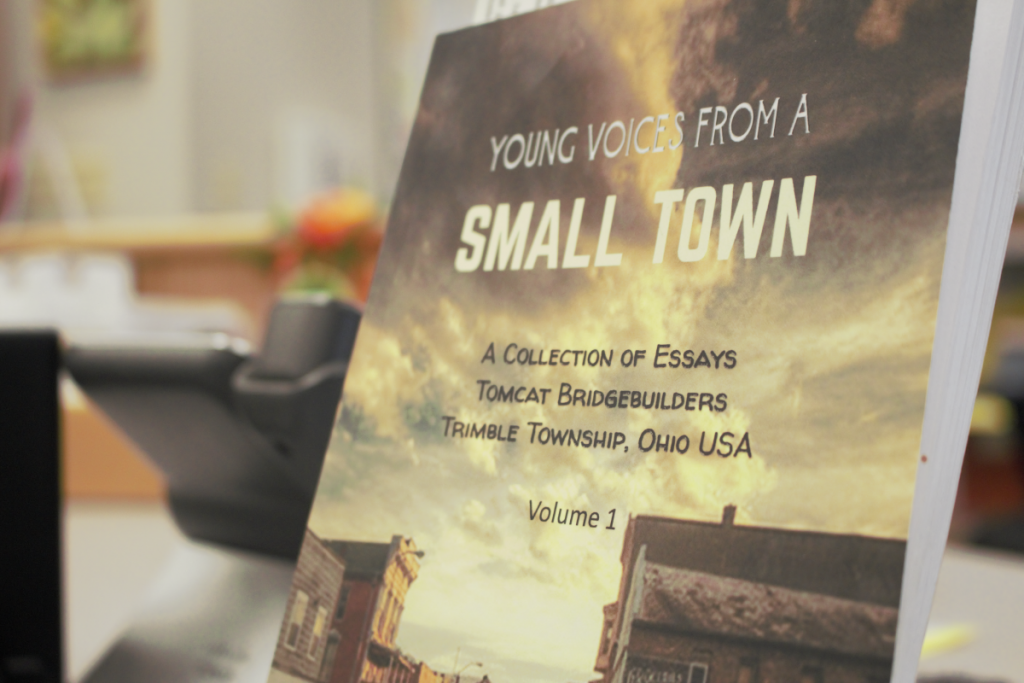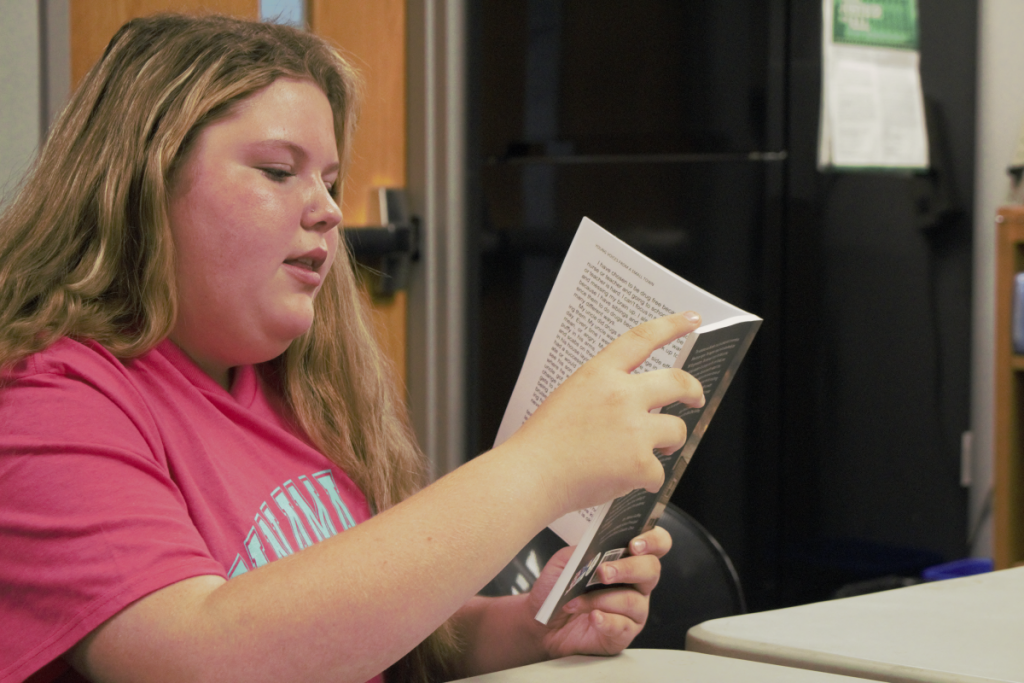News
Glouster’s youth grapple with the impact of substance use disorder in a new book
By: Theo Peck-Suzuki | Report for America
Posted on:
GLOUSTER, Ohio (WOUB/Report for America) — After Briley Mash saw her dad hit her mom, her uncle carried her to her grandparents’ house. Her father ran away; someone called the police. Briley and her sister sat in front of the TV, watching “Peppa Pig.”
“That night is engraved in my head and when I think about it I cry,” wrote Briley, who will start seventh grade in the fall. “That is all I can do. I can’t fix what’s done. I wish I could go back to that night and stop it but I can’t.”
For as long as Briley can remember, her father struggled with substance use disorder. He died three years ago from a drug overdose. Briley’s essay — a reflection on her father’s death — is one of 115 in the new book “Young Voices from a Small Town” from Monday Creek Publishing. The book is the unlikely result of a contest for students at Trimble Elementary/Middle School, each of whom wrote about why they think it’s important to live in a drug-free community.
The contest was originally conceived as part of the annual drug abuse prevention campaign Red Ribbon Week. There was no discussion of a book, originally — it was just a way to encourage kids to write, with the added incentive that the winner got to dunk a teacher in a dunk tank.
“The first year, we had an overwhelming response of 70 essays,” recalled Trimble school outreach caseworker Becky Handa.

“We have many students that are in this district that are raised by kin because they’ve lost a parent to overdose, they have parents that are incarcerated, they have parents that are in recovery,” Handa said.
In her essay, Briley reckoned with the tangle of feelings she still has when she thinks of her father.
“He chose drugs over his kids but my mom says he loves us but I think if he did loves us, why did he do drugs?” she wrote.
Later in the essay, she added, “I hated him for everything that he put us through but I still love him.”

“You know, when you talk about writing — with kids, there’s a lot of pushback, like, ‘We don’t wanna write an essay.’ There was zero pushback with this,” he said.
Handa said the essays became the talk of the school staff. Eventually, someone approached the Red Ribbon Week committee and asked if there was a way for others to read them. That’s when the idea came about to publish a book.
Over the next year, the Tomcat Bridgebuilders — a local community organization of which Handa is president — worked with Monday Creek Publishing to put the materials together and coax uneasy parents into allowing their children’s pieces to be published (many were reluctant, even though none of the essaywriters are identified by name). The finished product was published July 6 and is available for order on Amazon. It will also be available next week at Little Professor Bookstore in Athens.
Handa said the plan is to make this the first in a series.
“I’m sitting on 300 essays,” she said.
As for Briley, she can hardly believe the essay she wrote is now a published work.
“It’s crazy,” she said. “At first … I was shocked, and I was like, ‘You’re lying. It has to be a joke.’ But it wasn’t.”

